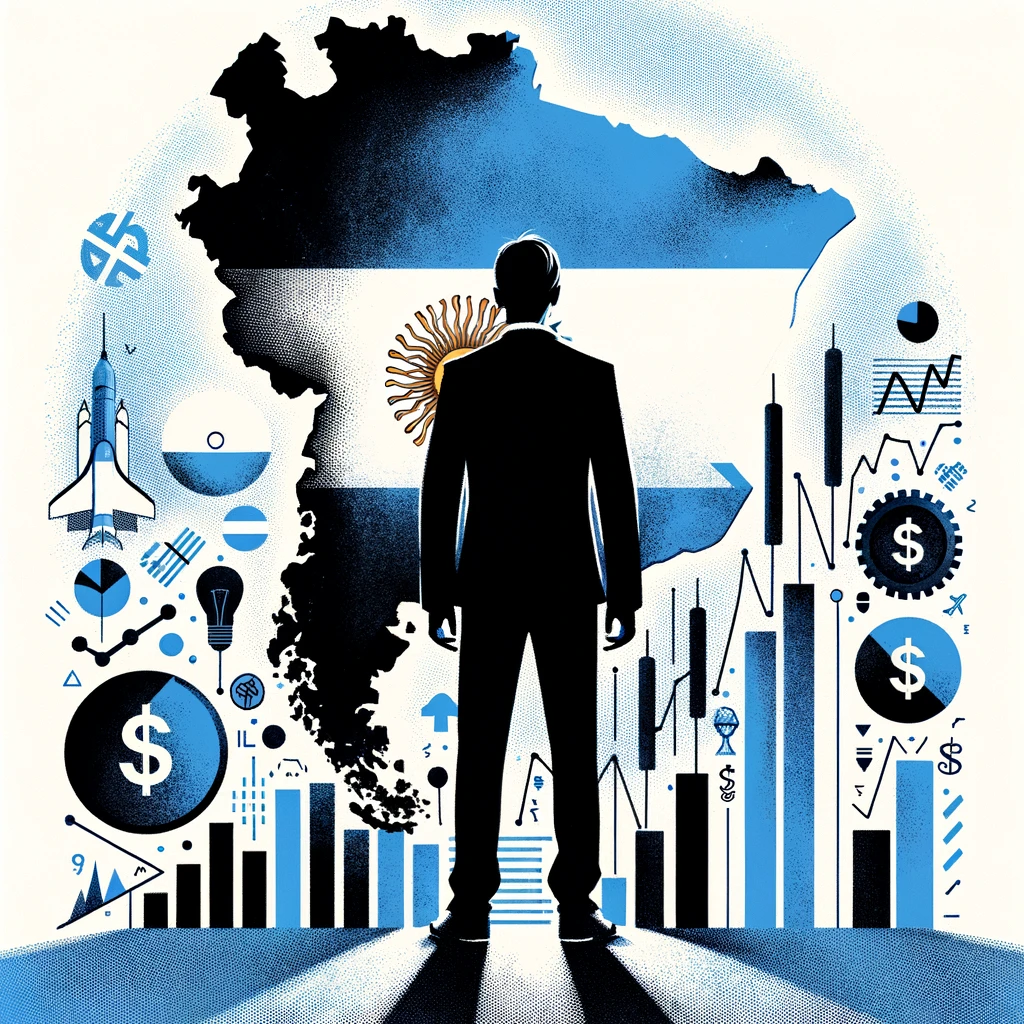Javier Milei, the libertarian president of Argentina, has tossed the traditional playbook out the window. He’s decided to dodge the roadblocks set by unfriendly legislators who have been stonewalling his major economic reform plans. Instead, he’s reaching for a different set of tools—decrees and executive powers—to put his radical austerity measures into play.
Speaking from the pink-hued walls of the Casa Rosada, the presidential palace, Milei shared that his plans for economic revival, though seen by many as a gamble, are moving along faster than anticipated. According to him, Argentina is witnessing a fiscal adjustment so severe that it’s unmatched anywhere else in the world or in history.
AMilei’s strategy is a stark austerity plan that has already yielded Argentina’s first budget surplus in over a decade. Achieved through drastic cuts to provincial payments, freezing budgets, and not adjusting pensions and benefits to match the country’s soaring inflation rate—recorded at 254% last month—these measures have not gone without criticism.
Economists are raising concerns over the sustainability of such deep cuts, but Milei, leaning on his background as an economist and TV pundit, remains undeterred. He points to a significant drop in inflation from a peak of 25.5% a month in December to 20.6% in January, and an anticipated further decrease to 15% in February, as evidence of his plan’s early success. His bold claim? To steer Argentina’s crisis-ridden economy to stability this year, all without the need for Congress’s approval.
Milei’s vision extends beyond immediate fiscal tightening. He’s eyeing a cleanup of the central bank’s balance sheet and the lifting of exchange controls as key steps towards economic stabilization. But not all has gone smoothly for Milei. His ambitious reform agenda faced immediate pushback from a Congress dominated by opposition, leading to a strategic withdrawal of his comprehensive reform bill.
Rather than wait for the political tide to turn in next year’s midterm legislative elections, Milei is prepared to advance his agenda through decrees and other means that bypass the legislative process. He argues that a significant portion of his proposed reforms can be enacted through executive action.
Milei’s stance is clear: while acknowledging the long-term importance of legislative backing, he believes Argentina’s dire investment landscape offers ripe opportunities for rapid economic gains. He’s betting that easing exchange controls will kickstart a virtuous cycle of investment and growth, setting Argentina on a path to robust, sustainable expansion with low inflation. This strategy, he hopes, will bolster the prospects of his political party, La Libertad Avanza, in upcoming elections, enabling a more ambitious legislative push down the line.
Despite mounting poverty levels and resistance from powerful labor unions, Milei’s confidence remains unshaken. He’s banking on the support of the Argentine people, buoyed by his pre-election honesty about the tough road ahead. And with Argentina facing critical external debt repayments in 2025, Milei’s fiscal discipline is aimed at ensuring the country can reengage with international capital markets to avoid default.
Milei’s approach is not without its risks. The austerity measures, while effective in curbing inflation, have been met with strikes and protests. Yet, Milei dismisses the likelihood of widespread social unrest, attributing any potential disturbances to political manipulation or foreign interference. He remains focused on forging international alliances and promoting a vision of economic freedom that aligns Argentina with countries like the US, Israel, and Ukraine.
In a bold move that reflects his unorthodox approach, Milei recently showcased Argentina’s solidarity with the global stage by donating military equipment to Ukraine and planning a Latin America support summit. His engagement with international figures, including a notable encounter with Donald Trump, underscores his commitment to positioning Argentina on the side of “freedom-defending” nations, irrespective of the current US political landscape.
Milei’s journey from economist to presidential insurgent is underpinned by a deep belief in the principles of the Austrian school of economics, rejecting what he dismisses as “Keynesian rubbish.” His confidence in his policy direction—driven by textbook economic theories rather than political convenience—marks a stark departure from traditional governance models in Argentina.






